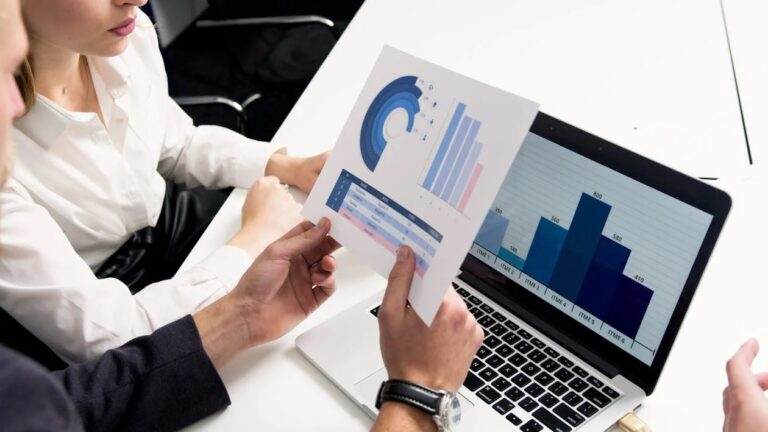Go into financial lockdown
If you’ve started the year with a blown budget, the best thing to do is to tackle your money problems head on. Lay everything out in the open and resolve to systematically address every issue. Don’t kick your money problems down the road as they will just compound as the months go by. Use the first few weeks of January to take stock of your situation and commit to a plan of action.
Download a money management app
My Financial Life, Moneysmart and 22seven are free money management apps which allow you to collate all your finances in one place. They allow you a bird’s eye view of your finances, as well as the functionality to do detailed budgeting, cashflow management, debt reduction planning and setting up savings.
Find a financial adviser
Bring a professional alongside you who can help you maximise your tax benefits, set up cost-effective investments that are aligned with your goals, and set you on a healthy money management course.
Buy a lunch box
Convenience expenses such take-away lunches, coffee-on-the-run and bottled water chip away imperceptibly at our finances and leave us wondering where our money went to. Buy a lunch box, travel coffee mug and water bottle – and commit to packing healthy, home-made lunch and refreshments to take to work.
Plan your grocery shops
An empty pantry is always a good excuse for eating out. While you’re in financial lock down, commit to planning your weekly meals, drawing up a grocery list, and keeping your fridge and cupboards stocked. If you’re not great in the kitchen, investigate U-Cook and other ready-to-cook services, or find a local person who delivers reasonably priced, homemade meals.
Leave your credit card at home
Unplanned purchases are more likely to happen if you’re carrying your credit card with you. Leave your credit card at home and commit to using cash only.
Go through your bank statements
Print out your latest bank statement and go through it line by line. Check every debit order that runs off your account. Find out exactly what it costs every time you swipe your card, make a payment or draw money from an ATM. If necessary, go to your bank and check that you are operating the most appropriate bank account for your purposes.
Reassess your subscriptions
While checking your bank account, highlight all the subscription debt orders that are running off your account such as Netflix, Showmax, Adobe, iTunes and DSTV. If you are not using a subscription or feel as though you are not receiving value for it, cancel it or downgrade to a cheaper option.
Check your short-term insurance policy
Many short-term insurance policies include built-in escalations on the value of the goods insured. If you’ve had the policy for a while it is possible that you are over-insured. Go through your policy carefully and adjust the values where necessary. If you haven’t reviewed your policy for some time, ask your short-term broker to prepare a comparative quote to ensure your premiums are market-related.
Enrol on all your medical aid programmes
Ensure that you are maximising your medical aid benefits by enrolling on the various programmes offered. Most open schemes offer chronic condition benefits, as well as maternity, mental health, oncology and diabetic programmes, to name just a few.
Learn how to maximise your loyalty points and miles
Most banks, medical schemes and insurers offer some sort of loyalty programme which rewards users with points, virtual money, miles or discounts. Make sure you’re not leaving free money on the table by making a concerted effort to understand how these programmes work. Use your rewards to help with your monthly expenses rather than blowing them on things you don’t need.
Go through your wardrobe
Before buying any new clothes, go through your wardrobe and make a list of the items you need. If it’s not on the list, you don’t need it and shouldn’t buy it.
Commit to buying quality
Having said that, make a commitment to buying quality clothes and shoes that will last. Rather than buying lots of fashion items that won’t last the season, look to buy high quality garments that don’t date and will last the distance.
Unsubscribe from temptation
If you’re being spammed by online shopping sites which tempt you to spend or which weaken your resolve, unsubscribe yourself. These sites play on your fear of missing out and can lead you to spend money on things you never knew you needed. Remember, it’s only a bargain if you needed it in the first place.
Sell your junk online
One person’s junk is another person’s treasure and it is likely you can make some money by selling stuff you no longer need. List your goods on sites such as Gumtree and Facebook Marketplace and turn your pre-loved goods into money that you can put to better use.
Check your cell phone contract
Find out when your cell phone contract is due for an upgrade and do your research carefully before committing to another 20-month contract. Understand the value of the handset, insure it and make sure you are not paying for more phone than you need. Request that your service provider caps your data so that you don’t unknowingly ring up an excessive bill.
Buy in bulk and use discounts
All retailers run special offers and discounts on various items. Before going shopping, find out what discounts and specials are on offer and then use them to your advantage – especially on staple purchases such as toilet paper, bread, coffee, flour and so on.
Set a limit for luxuries
Set a limit on what you can allocate towards luxuries and spoiling yourself. Not only will this help with your budgeting, it also means that you can treat yourself guilt-free and without suffering from buyer’s remorse.
Change your passwords
If you’ve been operating the same bank account for a while, it’s likely that your passwords and login credentials haven’t been changed in years. Reset your passwords and use a password management app to keep them safe from fraudsters.
Review your finances at the end of each month
Set up a recurring meeting in your calendar to review your finances every month. If you’ve downloaded a money management app, this is the best place to start with your monthly review.
Enjoy your Monday!
Sue








